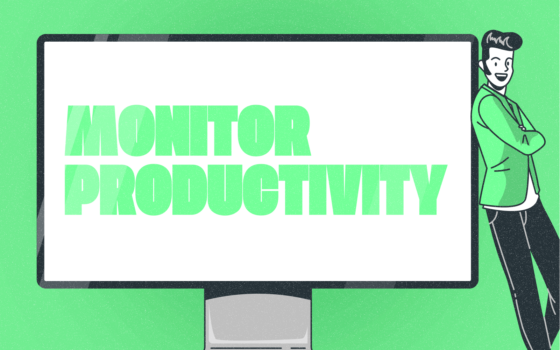HR Careers
Human Resources (HR) is a dynamic field that offers a wide range of career opportunities for individuals passionate about people management, organizational development, and employee relations. This comprehensive glossary explores various HR career paths, key roles, and essential skills required to thrive in this ever-evolving profession.
Understanding HR Careers
HR careers encompass a diverse array of roles and responsibilities within organizations. From recruitment and talent acquisition to employee engagement and workforce planning, HR professionals play a crucial role in shaping the success of businesses across industries.
The field of HR has evolved significantly over the years, moving beyond traditional administrative functions to become a strategic partner in organizational growth and success. As businesses recognize the importance of human capital, HR professionals are increasingly involved in decision-making processes at the highest levels of management.
Key Areas of HR
HR careers can be broadly categorized into several key areas, each offering unique opportunities for specialization and growth:
- Recruitment and Talent Acquisition
- Employee Relations
- Training and Development
- Compensation and Benefits
- HR Information Systems (HRIS)
- Organizational Development
- Diversity, Equity, and Inclusion (DEI)
- HR Analytics
These areas often overlap, and many HR professionals develop expertise in multiple domains throughout their careers.
Common HR Career Paths
HR careers offer diverse pathways for professional growth and advancement. Here are some common career trajectories within the field:
1. HR Generalist
HR Generalists are versatile professionals who handle a wide range of HR functions within an organization. They typically start as HR Assistants or Coordinators and progress to HR Manager roles as they gain experience and expertise.
Key responsibilities of HR Generalists include:
- Managing employee relations issues
- Overseeing recruitment and onboarding processes
- Administering benefits and compensation programs
- Ensuring compliance with labor laws and regulations
- Conducting performance management activities
2. Recruiter
Recruiters specialize in attracting, sourcing, and hiring top talent for organizations. Career progression in this field often involves moving from Junior Recruiter to Senior Recruiter, and eventually to Talent Acquisition Manager or Director.
Key responsibilities of Recruiters include:
- Developing and implementing recruitment strategies
- Sourcing candidates through various channels
- Conducting interviews and assessments
- Managing the hiring process from start to finish
- Building relationships with hiring managers and candidates
3. Learning and Development Specialist
Learning and Development (L&D) Specialists focus on enhancing employee skills and knowledge through training programs and developmental initiatives. Career progression in this area may lead to roles such as L&D Manager or Chief Learning Officer.
Key responsibilities of L&D Specialists include:
- Designing and delivering training programs
- Assessing organizational training needs
- Developing e-learning content and materials
- Evaluating the effectiveness of training initiatives
- Implementing leadership development programs
4. Compensation and Benefits Analyst
Compensation and Benefits Analysts specialize in designing and administering employee compensation and benefits packages. Career advancement in this field may lead to roles such as Compensation Manager or Total Rewards Director.
Key responsibilities of Compensation and Benefits Analysts include:
- Conducting salary surveys and market analysis
- Developing and maintaining job descriptions and salary structures
- Administering employee benefits programs
- Ensuring compliance with compensation laws and regulations
- Analyzing and reporting on compensation and benefits data
5. HR Business Partner
HR Business Partners (HRBPs) serve as strategic advisors to business leaders, aligning HR initiatives with organizational goals. This role typically requires significant experience and may lead to senior leadership positions such as VP of HR or Chief Human Resources Officer (CHRO).
Key responsibilities of HR Business Partners include:
- Collaborating with executives to develop HR strategies
- Providing guidance on organizational design and workforce planning
- Addressing complex employee relations issues
- Driving change management initiatives
- Aligning HR practices with business objectives
Emerging HR Careers
As the field of HR continues to evolve, new career opportunities are emerging to address changing workplace dynamics and technological advancements:
1. HR Analytics Specialist
HR Analytics Specialists leverage data and analytics to drive evidence-based decision-making in HR. They use statistical analysis and data visualization tools to provide insights on workforce trends, employee performance, and organizational effectiveness.
2. Employee Experience Designer
Employee Experience Designers focus on creating positive and meaningful experiences for employees throughout their journey with the organization. They work on enhancing various touchpoints, from onboarding to offboarding, to improve employee engagement and satisfaction.
3. Diversity, Equity, and Inclusion (DEI) Specialist
DEI Specialists develop and implement strategies to foster inclusive work environments and promote diversity within organizations. They work on initiatives to address bias, promote cultural awareness, and ensure equitable practices across all HR functions.
4. HR Technology Consultant
HR Technology Consultants specialize in implementing and optimizing HR information systems and tools. They help organizations leverage technology to streamline HR processes, improve efficiency, and enhance the overall employee experience.
Essential Skills for HR Professionals
Successful HR careers require a combination of technical knowledge, soft skills, and business acumen. Here are some essential skills for HR professionals:
1. Communication
Strong verbal and written communication skills are crucial for HR professionals to effectively interact with employees, managers, and executives. Clear and empathetic communication is essential for handling sensitive issues and conveying HR policies and procedures.
2. Problem-solving
HR professionals often face complex challenges that require creative problem-solving abilities. The ability to analyze situations, consider multiple perspectives, and develop effective solutions is highly valued in HR careers.
3. Emotional Intelligence
Emotional intelligence is critical for HR professionals to navigate interpersonal relationships, manage conflicts, and build trust with employees and stakeholders. It involves self-awareness, empathy, and the ability to manage emotions effectively.
4. Data Analysis
As HR becomes more data-driven, the ability to analyze and interpret data is increasingly important. HR professionals should be comfortable working with HR metrics, conducting statistical analysis, and using data to inform decision-making.
5. Business Acumen
Understanding the broader business context is essential for HR professionals to align HR strategies with organizational goals. Business acumen allows HR professionals to contribute strategically and demonstrate the value of HR initiatives.
6. Adaptability
The HR field is constantly evolving, and professionals must be adaptable to keep up with changing regulations, technologies, and workplace trends. A willingness to learn and embrace new approaches is crucial for long-term success in HR careers.
Education and Certifications
While specific educational requirements may vary depending on the role and organization, most HR careers typically require a bachelor's degree in Human Resources, Business Administration, Psychology, or a related field. Some senior-level positions may require a master's degree in HR or an MBA with an HR concentration.
Professional certifications can also enhance career prospects and demonstrate expertise in specific areas of HR. Some popular HR certifications include:
- Professional in Human Resources (PHR)
- Senior Professional in Human Resources (SPHR)
- SHRM Certified Professional (SHRM-CP)
- SHRM Senior Certified Professional (SHRM-SCP)
- Certified Compensation Professional (CCP)
- Global Professional in Human Resources (GPHR)
These certifications often require a combination of education, experience, and passing a comprehensive exam.
Career Advancement in HR
Advancing in HR careers typically involves a combination of education, experience, and skill development. Here are some strategies for career growth in HR:
1. Continuous Learning
Stay updated on industry trends, new technologies, and best practices through professional development courses, workshops, and conferences. Pursue relevant certifications to demonstrate expertise in specific areas of HR.
2. Networking
Build relationships with other HR professionals, join professional associations, and attend industry events to expand your network and learn from peers.
3. Gain Cross-functional Experience
Seek opportunities to work on projects that involve multiple HR functions or collaborate with other departments to broaden your skillset and understanding of the business.
4. Develop Leadership Skills
Take on leadership roles in projects or initiatives, mentor junior colleagues, and seek opportunities to demonstrate your ability to lead and influence others.
5. Embrace Technology
Develop proficiency in HR technologies and data analytics tools to stay competitive in the increasingly digital HR landscape.
Future Trends in HR Careers
As the workplace continues to evolve, HR careers are likely to be shaped by several emerging trends:
1. AI and Automation
Artificial intelligence and automation are transforming HR processes, creating new opportunities for HR professionals to focus on strategic initiatives while leveraging technology for routine tasks.
2. Remote Work and Distributed Teams
The rise of remote work and distributed teams is changing the way HR professionals approach talent management, employee engagement, and organizational culture.
3. Employee Wellbeing
There is an increasing focus on holistic employee wellbeing, including mental health and work-life balance, creating new roles and responsibilities for HR professionals.
4. Upskilling and Reskilling
As job roles evolve rapidly, HR professionals will play a crucial role in developing and implementing strategies for continuous learning and skill development within organizations.
5. Ethical AI and Data Privacy
HR professionals will need to navigate the ethical implications of AI in HR processes and ensure compliance with data privacy regulations.
Conclusion
HR careers offer diverse opportunities for individuals passionate about people management and organizational development. As the field continues to evolve, HR professionals must adapt to new technologies, embrace data-driven decision-making, and develop a strategic mindset to drive organizational success.
Whether you're just starting your HR career or looking to advance to senior leadership roles, continuous learning, adaptability, and a focus on developing both technical and soft skills will be key to thriving in this dynamic field. By staying informed about industry trends and embracing new challenges, HR professionals can build rewarding careers that make a significant impact on organizations and employees alike.


